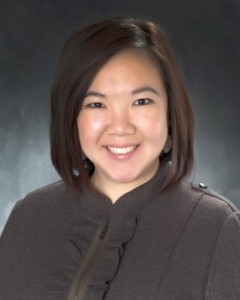Health care administrator named MHA Community Partner of the Year
September 19, 2014 • Uncategorized
 Winjie Tang Miao, President of Texas Health Harris Methodist Hospital Alliance, has been named by the School of Public Health (SPH) as the 2014 Master of Health Administration (MHA) Community Partner of the Year, in recognition of her outstanding service to students through teaching and mentoring.
Winjie Tang Miao, President of Texas Health Harris Methodist Hospital Alliance, has been named by the School of Public Health (SPH) as the 2014 Master of Health Administration (MHA) Community Partner of the Year, in recognition of her outstanding service to students through teaching and mentoring.
“As adjunct instructor for the MHA Capstone Course, the culminating experience before graduation, Winjie recognizes the significance of this final step in helping students get ready for the real world,” noted Dr. Nuha Lackan, Director of the MHA program and Associate Professor of Health Management and Policy.
“Not only is she willing to share honestly the lessons she’s learned along the way in her own career – both the ups and downs – she relates well to our students because she’s closer to their age than most administrators, having moved up quickly through the Texas Health system since she first started as an administrative resident with Presbyterian Hospital Dallas back in 2000,” Dr. Lackan said.
This year, Ms. Miao was honored by the Fort Worth Business Press with a “40 Under 40” award, and she received the Outstanding Achievement Award from the U.S. Pan Asian American Chamber of Commerce, Southwest Region, in 2013. She has been recognized in Becker’s Hospital Review as one of its 2012 “25 Healthcare Leaders Under Age 40” and holds a Distinguished Leadership Award from the Illinois Mathematics and Science Academy. In 2008, she was named as one of Modern Healthcare’s “Up and Comers.”
In addition to teaching for the SPH for three years and serving on the MHA Advisory Council, Ms. Miao serves on the board for the March of Dimes Texas Chapter, the American College of Healthcare Executives of North Texas, and is a member of the Texas Hospital Association’s 2014 Council on Policy Development.
“We are very fortunate that a recognized health care leader like Winjie is part of our program and able to share her knowledge in our classrooms – we simply couldn’t do what we do without strong community partners,” Dr. Lackan said.

Social media